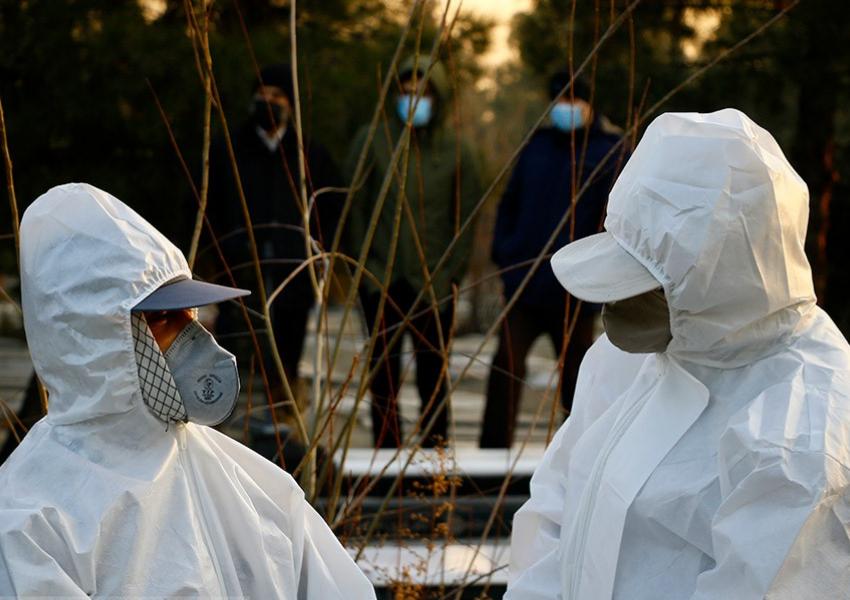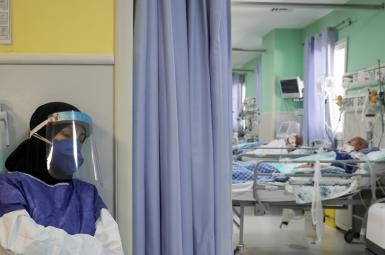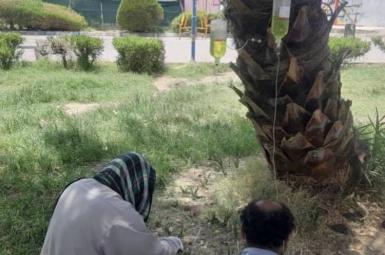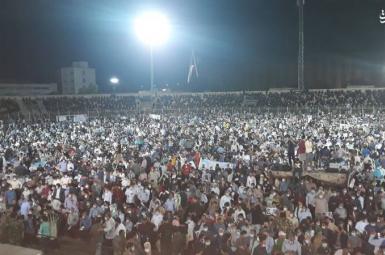
Health Minister Warns Of Covid Surge As British Variant Spreads In Iran
Iran’s Health Minister Saeed Namaki on Saturday [February 13] said a strain of Covid-19 first detected in the United Kingdom had spread across Iran. “We must think that it can [now] be found in every city, village or family,” he told a video conference with heads of medical science universities on Saturday [February 13].
Namaki said a 71-year-old woman in Tehran, who had died after testing positive for the British variant, had not traveled or been in contact with anyone returning from abroad. The case of a 48-year-old man infected with the British strain in Abyek, Ghazvin Province, showed the mutant virus was circulating throughout country, he said. The man’s death was announced on Friday by Ghazvin Medical Sciences University.
The first case of the variant was identified in Kent, southern England, in September and first discovered in Iran in early January in a patient who had returned from Britain.
Namaki said the mutant virus was more transmittable, and had more severe symptoms, and a higher fatality rate. He said the British authorities had underestimated the dangers: “They said, falsely, that the mutant virus was 30 to 70 percent more transmittable.”
Namaki warned of a “formidable” surge in the coming days and urged the Iranian healthcare system and Iranian people to be prepared, with stricter health protocols and doctors testing several times if symptoms persisted after negative tests. He also predicted local mutants would emerge in Iran or arrive from neighboring countries.
On Saturday Amir-Hossein Ghazizadeh, a member of the national Coronavirus Combat Taskforce, said cases of the South African mutant had also been observed. He expressed concern over the vaccination of several million Afghan refugees and migrant workers.
Iran began its vaccination program on Tuesday [February 9] with the Russian-made Sputnik V. The second consignment of Sputnik-V consisting of 100,000 doses has arrived, Dr. Kianoush Jahanpur, the health ministry's head of public relations, said in a tweet on Friday. Iran received the first shipment of 500,000 doses on February 4. The announcement of the approval and purchase of the Russian-made vaccine, which is expected to be approved by the European Union this month, stirred huge controversy among health professionals and social media users in late January.
According to Mostafa Ghanei, Secretary of the Scientific Committee of the coronavirus taskforce, Iran's healthcare system has the capacity to administer only 4 million doses of vaccine per month, suggesting vaccinating 60 percent of the 83-million population would take over a year.
Iran has reported over 1.5 million Covid cases and 57,560 deaths, according to government data released on Saturday, with 74 deaths in the last 24-hour reporting period. According to health ministry spokesperson, Dr Sima-Sadat Lari, nearly 10 million coronavirus tests have been carried out.









